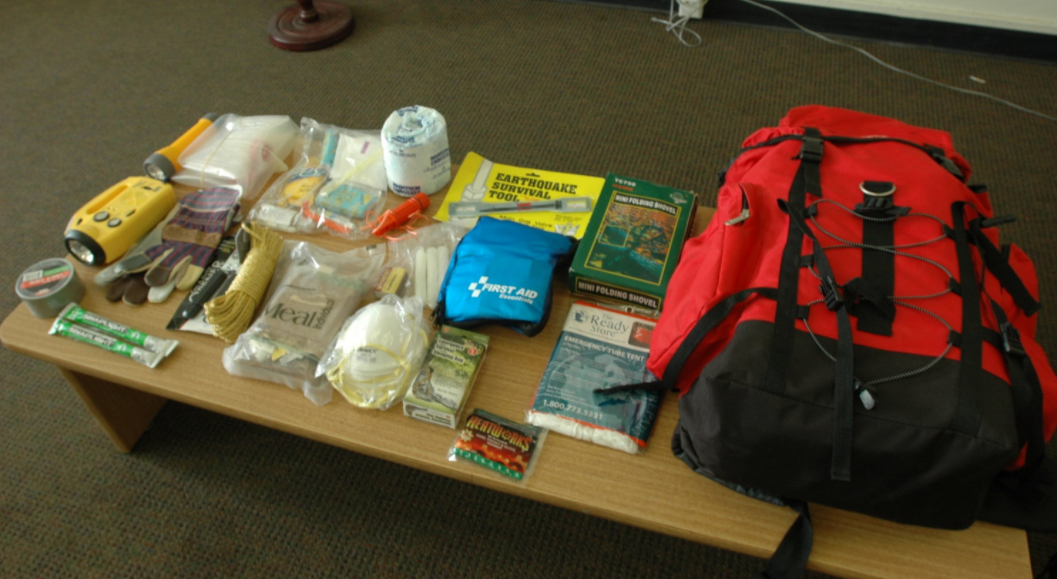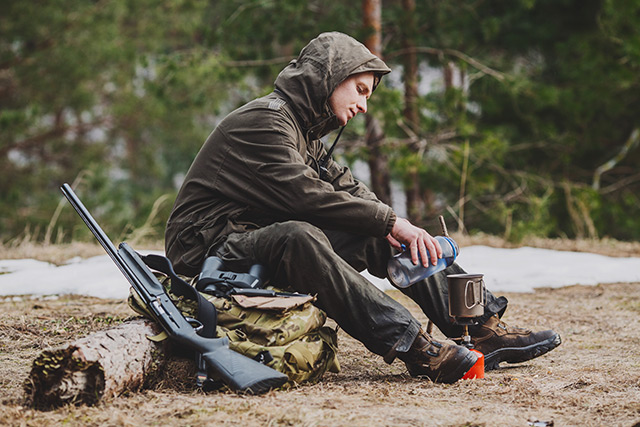When preparing your EDC, avoid these common mistakes that even seasoned preppers make
02/17/2019 / By Rhonda Johansson

As with the world it prepares for, the prepping lifestyle is dynamic and ever-changing. Whereas everyday carry (EDC) used to be an oft-forgotten topic among preppers, it is now being considered to be an essential component of survival. EDC loadouts can range from containing only bare-bones minimalist tools to a full complement of equipment. There is no “correct” EDC solution, as each of us have our own personal goals, physical capabilities, and prepper leanings. However, complacency can hit any of us, and an incorrectly prepared EDC can cause more hard than good.
Let’s review a few of the more common EDC mistakes even seasoned preppers make. (h/t to ModernSurvivalOnline.com)
Not carrying it
Let us reiterate: EDC means EveryDay Carry. This means you should carry it every day. EDCs are similar to a bug-out bag (BOB) in that they should be both well-stocked and easy to carry. The balance is tricky to find, but it’s well worth the effort. The perfect EDC should have carefully curated and selected items that you deem to be valuable to always have on your person.
The beauty of this is that it allows you to choose what items you want. From pocket knives to multi-tools, you choose which items are a must.
Being conspicuous
One of the biggest mistakes in packing or buying an EDC is finding one that has tell-tale signs of it being meant for prepping. Don’t let other people know that you are prepared or self-sufficient. This makes you more of a target than anything.
If your EDC bag is overtly tactified in appearance, consider changing it.
Sponsored solution from the Health Ranger Store: Lab-verified Nascent Iodine solution is a dietary supplement that provides your body with supplemental iodine to help protect your thyroid during radiation exposure. Nuclear accidents such as Fukushima (or nuclear war) can expose your body to radioactive iodine-131, a dangerous radioisotope. Pre-loading your system with stable iodine occupies the iodine receptor sites on your organs, causing your body to naturally expel radioactive iodine you may have been exposed to through air, food, water or milk products. This defensive strategy is recommended by nearly all health authorities, worldwide, including the Nuclear Regulatory Commission. Discover more at this link.
Allowing weapons to print
This follows from the previous point. You never want to let other people know that you are armed. You might think this is not a big deal, but trust us: People pay attention — especially when a situation goes against the “norm.” Even the densest person will subconsciously take note if a person next to them is carrying a weapon.
Pocket knives are one of the biggest offenders in this category. Do not carry a pocket knife with a clip on it. The clip is a BIG sign that you have a folding crew-served knife in your pocket.
Not maintaining your tools
So you have your EDC, what next? Remember that your tools are only useful if they work. Make sure that the items you carry on you regularly are well taken cared of.
The most obvious example of this would be to keep your knives sharp. Similarly, any metal items need to be regularly lubricated or refinished.
Guns, likewise, need to be oiled and free of dust bunnies. Guns will malfunction without care.
Not practicing with your EDC
To prep is to assume the unknown. BOBs are lauded for their usefulness during SHTF situations, but EDCs are necessary because they keep you prepared whenever and for whatever.
To be fair, some things don’t require much practice. You don’t need to keep on practicing how to use your lighter, for example. But other things you carry, like medical supplies, need to be practiced on. If you don’t have the skills to use the tools in your EDC, they would be more of good luck charms than anything else. (Related: Everyday carry: Here’s what a former SAS special operator carries in case of a terrorist attack.)
Carrying too much
Yes, there really is no such thing as the “perfect” EDC. That said, your on-body EDC should be able to serve you by enhancing your capabilities in case of emergencies, and not cover any imaginable contingency (which BOBs are for).
Remember that prepping is a lifestyle, and is heavily reliant on your mindset. This includes keeping your head straight, and understanding the need for certain equipment for certain situations.
Sources include:
Tagged Under: BOB, bug out bag, EDC, emergency, everyday carry, Gear review, preparedness, prepper, Preppers, prepping, SHTF, survival, survival gear




















